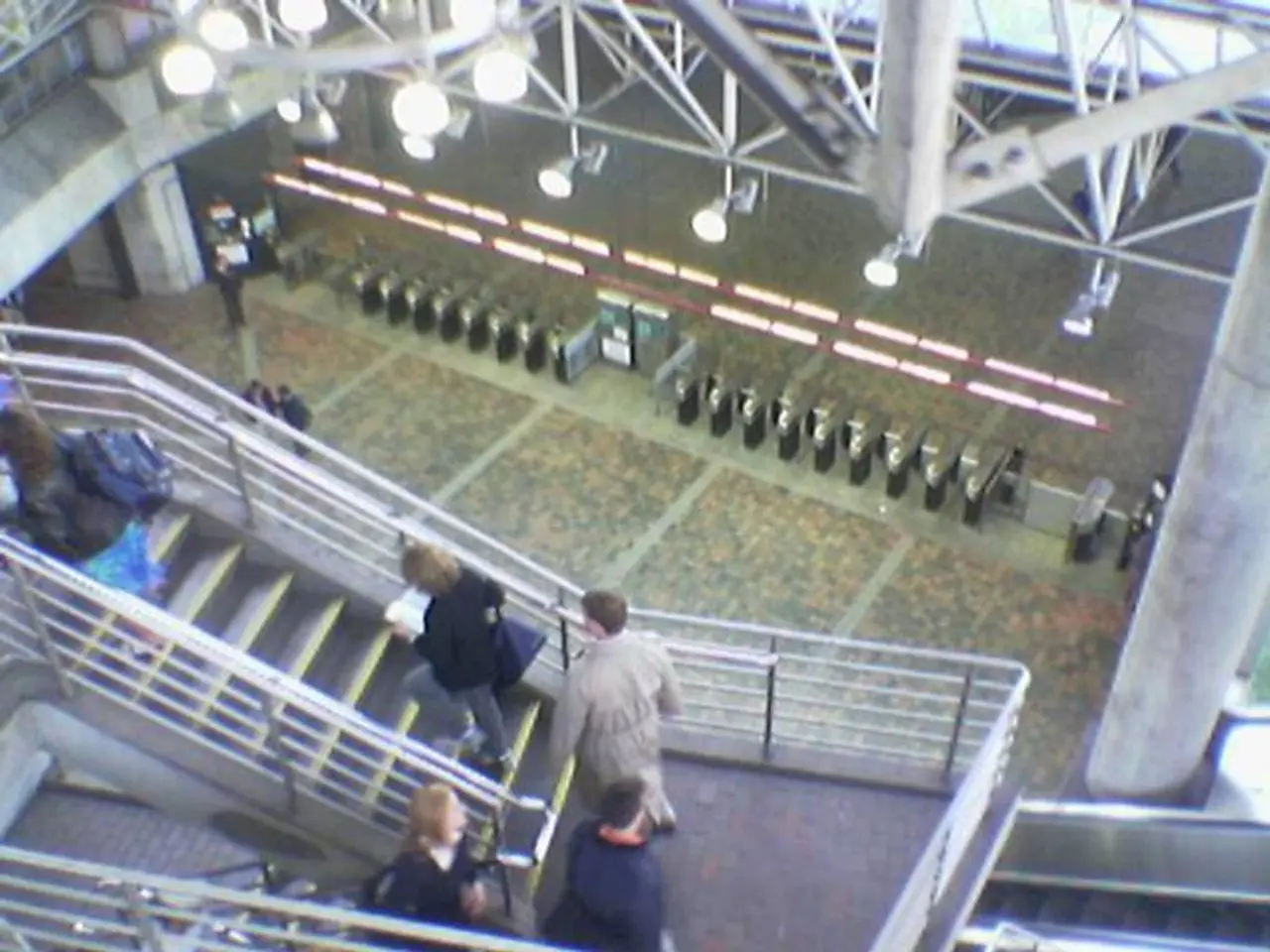Transit Becomes More Accessible and Commuter-Centric Through Ampetronic Innovations
Ampetronic's Auri System Brings Revolutionary Audio Accessibility to Bristol Temple Meads Station
In a significant stride towards enhancing audio accessibility for passengers, Ampetronic's Auri system has been integrated into Bristol Temple Meads Station. This marks the first public application of Auri in a transport environment.
The Station Innovation Zone program, a collaboration platform for rail technology innovators, buyers, and investors, selected Ampetronic to test Auri in the bustling station. The program aims to reduce barriers to innovation, paving the way for cutting-edge solutions like Auri to improve the commuting experience.
The Auri system, in collaboration with Listen Technologies, delivers clear, personalized audio broadcasts directly to passengers' devices via Auracast Bluetooth LE Audio technology. This innovation benefits hearing aid users, neurodivergent individuals, and those who struggle in noisy environments by providing live announcements and travel information with enhanced speech clarity and privacy.
Passengers with Auracast-enabled devices can now access station announcements with ease, reducing barriers and improving the overall commuting experience and safety. Ampetronic has installed 10 Auri transmitters in the station to cover high-traffic zones, ensuring consistent coverage.
Initial reactions from passengers who have tried the Auri system have been encouraging. Early feedback suggests that the system significantly improves speech intelligibility, particularly in noisy environments, overcoming challenges posed by complex acoustics.
Ampetronic has commissioned the Royal National Institute for Deaf People (RNID) to conduct in-depth user trials at Bristol Temple Meads Station. The trials aim to assess the efficacy of the Auri system, the type of information the system should broadcast, and what improvements could be made to access the technology.
Jonathon Hoskin, business development manager at Ampetronic, expressed eagerness for more passengers to experience Auri and find it helpful. He stated that the feedback and insights gathered in the trial can help improve accessibility, the passenger experience, and operational efficiencies not only in Bristol but also within the broader public transportation industry.
Key benefits and impacts of the Auri system include improved speech intelligibility, support for hearing aid users and cochlear implant wearers, enhanced accessibility for neurodivergent individuals and non-native English speakers, aid for occasional travelers and those unfamiliar with the station layout, and inclusive design aligned with accessibility standards.
The system was tested live in collaboration with RNID to refine user experience and functionality based on real passenger feedback, indicating very positive reception and practical benefit. Ampetronic will also evaluate the interoperability of Auri with existing systems to ensure seamless integration.
In summary, Auri at Bristol Temple Meads represents a transformative step in assistive listening technology for public transportation, ensuring critical auditory information reaches diverse passenger groups directly and clearly, improving communication, safety, and comfort across the station environment.
[1] Ampetronic Press Release, [date] [2] Bristol Temple Meads Station Website, [date]
- The integration of Ampetronic's Auri system at Bristol Temple Meads Station signifies the first instance of this technology in a transport environment, opening doors for subsequent applications within the business and industry sectors, particularly in transportation.
- The Auri system's innovative features, such as the Auracast Bluetooth LE Audio technology, offer benefits not only to hearing aid users but also to neurodivergent individuals, non-native English speakers, and those who struggle in noisy environments, thus supporting the finance and technology sectors' commitment to inclusivity and accessibility.
- As the Auri system at Bristol Temple Meads Station undergoes user trials by the Royal National Institute for Deaf People (RNID), crucial insights will be gained to improve accessibility within the transportation industry, potentially revolutionizing the way critical information is delivered across numerous transportation events and scenarios.




